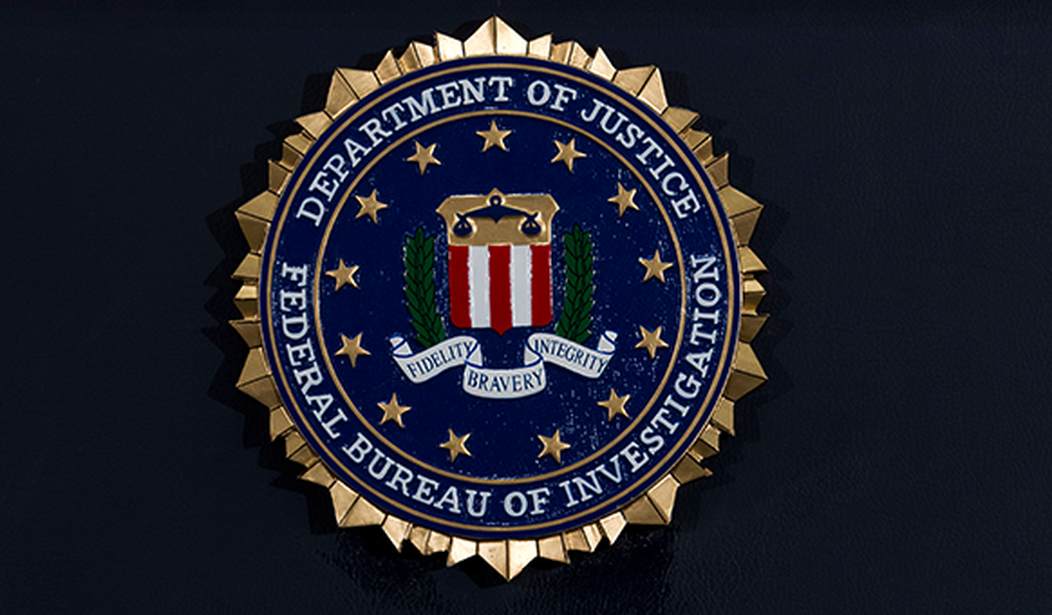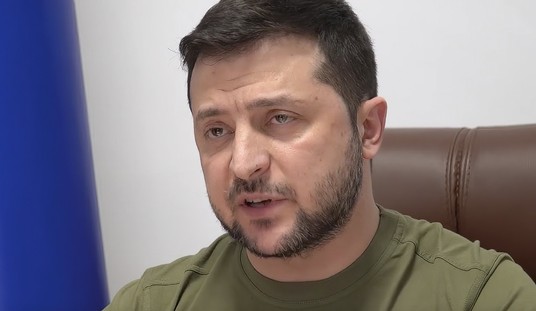This year began in tragedy, as a man drove his truck, one with an ISIS flag, into those celebrating on Bourbon Street. He also got out and began firing. Police killed the suspect, Shamsud Din Jabbar, but not before he killed 14 people. There's been plenty of concerns about how law enforcement, including the FBI, handled the terrorist attack, making it even more necessary for Kash Patel to be confirmed as President-elect Donald Trump's FBI director. Sen. Marsha Blackburn (R-TN), in a recent episode of "Unmuted with Marsha" weighed in on all of this, with a sneak peak exclusive shared with Townhall.
For such an episode, the first of this year, Blackburn spoke with Former FBI Assistant Director Chris Swecker.
The senator began by asking Swecker about the security barriers on Bourbon Street being down, broken, and in the process of being replaced. Blackburn had some pretty pertinent questions, "why was there no backup plan for this? How in the world could a law enforcement entity look at this and not have a proper backup plan to keep the public safe?" To add more embarrassment for the city, the police chief didn't even know about the barriers.
Swecker offered that the issue was "complacency and incompetence," adding, "I mean, there's no other way to explain it." He also spoke to the exact role that the FBI played in investigating the terrorist attack, and why they have not done such a great job.
"The city of New Orleans, and all law enforcement and the FBI, the agencies that are responsible for managing this type of event. Now the FBI is not primary, but they have an intelligence role to play. Nothing bad had happened in a long time, so they got complacent," he offered. Swecker also reminded that having such barriers "is not an alien concept to them," given that they have the Sugar Bowl every year, have had the Super Bowl, and Mardi Gras is a big annual celebration. New Orleans gets a multi-million dollar grant for security because of such events.
Swecker also focused on how "the biggest thing with security is deterrence," which involves "putting up a strong front and deterring anyone who wants to do bad things from actually trying to do them." The barriers have to actually go up, though.
Recommended
"The next thing, though, is get those barriers up, anticipate bad things happening, try to war game what a bad person would do, what a person with bad intentions would do, and counter that," Swecker continued. He also later added, unfortunately, that the city "just had not put any priority or urgency around fixing those barriers and again, anticipating bad things from happening."
Swecker next offered specific insight about the incompetence of law enforcement in this case, as he highlighted how "the FBI in New Orleans barely knew the local police department" and that "they had no idea who [the Assistant Special Agent in Charge] was" when she showed up. This is despite how, as Swecker emphasized, "they should be working together every day. They should have had a unified command post set up within minutes, because they, because they work together, or should work together all the time."
Blackburn herself pointed out how what "really surprised me when that information came out... was just this lack of awareness of the FBI and the local police." The senator is curious about how the FBI ought to be coordinating with local law enforcement for such big events.
Swecker detailed how since 9/11 there's been efforts to "hopefully fix" communication issues, especially for events considered to be a "level-one special event" or "high-level special event," including Mardi Gras.
"So, what they're supposed to do is have a command center already established. They're supposed to train together, drill together. They're supposed to come together with a plan. And the FBI is role, really is a secondary role of intelligence, providing intelligence, providing any other resources, command, resources that they need," Swecker explained. "The primary responsibility for physical security would fall on the local police department and the state. So that's all supposed to come together in an incident command system. And supposed to be drilled on a regular basis," he continued, pointing out "they obviously hadn't done that."
Worse, the FBI has been prioritizing DEI. Earlier this month, Blackburn wrote a letter to FBI Director Christopher Wray, asking about those priorities and policies.
"Because to so many Tennesseans that I represent, what I heard from them was why in the world were they taking photos of Swifty bracelets and how many they had collected and spending hours on DEI training. And we find out that the New Orleans police chief was moonlighting as a DEI instructor, and those are so unsettling to the public," Blackburn said about the need for such a letter. "So how is it that the FBI has gotten so far off track, on DEI and other things that are not mission specific?"
FBI Director Christopher Wray owes the American people answers.
— Sen. Marsha Blackburn (@MarshaBlackburn) January 7, 2025
Under his leadership, the FBI has prioritized DEI over its core mission of protecting the American people. @Varneyco pic.twitter.com/DaqglcOJ8W
#FBINewOrleans thanks all our new friends/Swifties who provided a little extra gear to our folks this weekend! Everything goes with camo. pic.twitter.com/RHNOtLmB48
— FBI New Orleans (@FBINewOrleans) October 27, 2024
Swecker not only praised such an inquiry, but also illustrated how it didn't always use to be this way. The FBI "wanted to recruit a diverse workforce," but they "didn't compromise on merit, on merit hiring and merit promotions," stressing that "it all had to be earned."
That's where the tenure of former FBI Director James Comey comes in.
"I think, under the tenure of Jim Comey, the FBI started to stray from its core mission, which is counter-terrorism, major criminal organizations, counterintelligence, the Chinese are stealing every shred of technology we have, the gangs, the cartels, they strayed from that, and they started sort of veering off into political cases, if you will," Swecker offered.
It got worse. "The DEI came in with this administration, and the FBI began to very aggressively, very proactively, start down that DEI path," with "sort of permeated promotions, hiring," he explained.
"So, there's kind of a donut hole in the FBI where you have the top leadership influenced by the administration and the Justice Department going through the going down the road of political cases," Swecker continued. "And then the new hires are, you know, under this new system, hiring system... based on something else. So now you got the top leadership in the in the pipeline of new agents coming in that are of a total, totally different mindset. They actually think that things like DEI are more important than the core mission, and that gets in the way of the core mission," he explained further, referencing and praising Blackburn's letter.
Such responses prompted Blackburn into asking how the FBI can get back on track and be "mission specific," and "go back to your core mission," since, as she reminded, "when they fail, the American people are put at risk." She also asked Swecker his advice for Patel and Pam Bondi, Trump's pick for Attorney General, specifically, "what are those first initial steps that they should take to clean up the FBI and restore them to their mission?"
Swecker's offered that they issue an executive order, which he does think "will be forthcoming," and one that dictates "DEI is gone completely." Swecker also spoke of the "need to identify the ideologues in the FBI... who have not checked their politics at the door," adding that "they're notorious for it." He mentioned specific agents, such as the head of the Miami office, who made anti-Trump posts and yet still has a job, at one of the biggest field offices in the bureau, no less.
"You identify those and marginalize them or show them the door, and many of them will leave anyway, because they know what's coming," Swecker offered. He also spoke about reinstituting inspections at the FBI every two years and how he wants performance appraisals "to be a lot tougher."
"So I think you do that, and you're going a long ways towards getting merit and productivity and the core mission back into play, no politics. If the DOJ says, go raid Mar-a-Lago, you say, no, there are times when you have to stand up to the administration and the Department of Justice and be willing to stand on a principle," he concluded.

























Join the conversation as a VIP Member